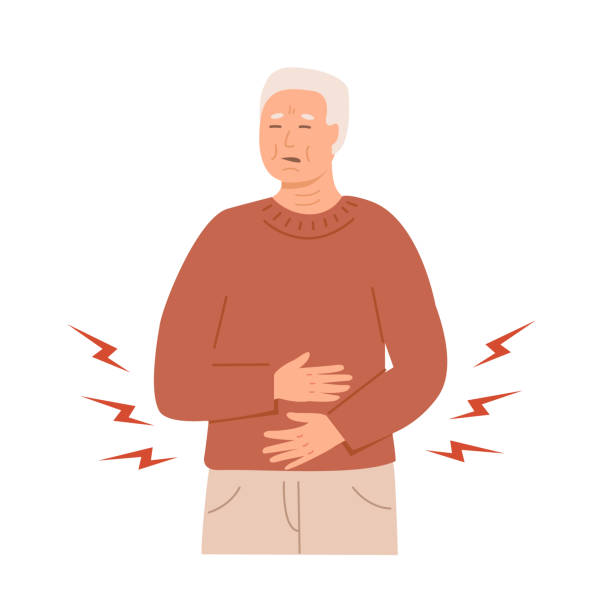
Antibiotics are antibacterial medications. Doctors frequently prescribe antibiotics to treat urinary tract infections (UTIs).
The following are the most common UTI symptoms:
- A strong desire to urinate frequently.
- When you urinate, you get a burning sensation.
However, many elderly people receive UTI treatment even though they do not exhibit these symptoms. This has the potential to cause more harm than good.
According to the World Health Organization (WHO), Antimicrobial resistance (AMR) is a major global public health and development problem. As per the WHO, bacterial AMR is projected to have directly caused 1.27 million deaths worldwide in 2019. The misuse and overuse of antimicrobials in humans, animals, and plants are the primary causes of drug-resistant infections (1).
In 2020, 1 out of every 5 urinary tract infections caused by E. coli showed reduced sensitivity to common antibiotics such as ampicillin, co-trimoxazole, and fluoroquinolones. This complicates the treatment of common infections (1).
A urinary tract infection (UTI) happens when germs or microorganisms get into the urinary system and cause an infection. The urinary system includes the bladder, kidneys, ureters and the urethra. Bacteria cause over 95% of all UTIs, with Escherichia coli accounting for the majority of cases. Klebsiella, Enterobacter, Proteus, Pseudomonas, Enterococcus, Staphylococcus, and other bacteria can all cause UTIs. In UTI infections, antibiotic treatment is frequently initiated immediately before the findings of urine culture and susceptibility testing are available (2).
Antibiotics are usually ineffective when there are no UTI symptoms.
Bacteria are frequently found in the urine of the elderly. This does not necessarily imply that they have a UTI. However, doctors may find the bacteria in a routine test and still prescribe antibiotics.
Antibiotics are not of help to these patients.
- It does not protect against UTIs.
- It does not affect bladder control.
- It does not help with balance or memory issues
Unless they have UTI symptoms, most older people should not be tested or treated for a UTI. And, if you do have a UTI and are treated, you usually do not need another test to determine whether you are cured. Only get tested or treated if your UTI symptoms return. This could help to stop antibiotic misuse for urinary tract infections in seniors.
General practitioners (GPs) provide the bulk of antibiotic treatments, and urinary tract infections (UTIs) are among the most common diagnoses in primary care. The senior population is extremely important to the study in terms of AMR because they are highly exposed to antibiotics. This population also has a high percentage of hospital admissions and stays in long-term care institutions, both of which are risk situations for infection with antimicrobial-resistant bacteria and antibiotic therapy. To reduce unnecessary antibiotic use while also reducing the likelihood of treatment failure, the GP must be able to identify individuals who are at high risk of antimicrobial resistance (3).
Antibiotics have unintended consequences.
Side effects of antibiotic tablets include fever, rash, diarrhoea, nausea, vomiting, headache, tendon ruptures, and nerve damage.
Antibiotics have the potential to cause future problems.
Antibiotics can kill "friendly" germs in the body. This may result in vaginal yeast infections. Other infections, severe diarrhoea, hospitalization, and even death can result.
Antibiotics may also promote the growth of "drug-resistant" bacteria. These bacteria are more difficult to eradicate. They cause illnesses that are more difficult to treat and more expensive to treat. Your doctor may need to try several antibiotics. This raises the possibility of complications. Resistant bacteria can also spread to others.
Antibiotics can be expensive.
Antibiotics on prescription can range in price from ten to more than a thousand rupees. If you get an infection caused by resistant bacteria, you may need more doctor visits and more expensive medications.
When should older people take antibiotics for a urinary tract infection?

Antibiotics can help if you have UTI symptoms.
The most common UTI symptoms are a painful, burning sensation when urinating and a strong desire to "go" frequently. Fever, chills, and confusion are common UTI symptoms in the elderly. These symptoms are usually accompanied by pain on one side of the back below the ribs or discomfort in the lower abdomen. There may be a change in the appearance or odour of the urine.
Some types of surgery, such as prostate surgery and procedures to remove kidney stones or bladder tumours, can result in urinary tract bleeding. If you have this surgery, you may require testing and treatment for bacteria in your urine.
(1) - https://www.who.int/news-room/fact-sheets/detail/antimicrobial-resistance
(2) - Patel HB, Soni ST, Bhagyalaxmi A, Patel NM. Causative agents of urinary tract infections and their antimicrobial susceptibility patterns at a referral centre in Western India: An audit to help clinicians prevent antibiotic misuse. Journal of family medicine and primary care. 2019 Jan 1;8(1):154-9.
(3) - Jensen ML, Siersma V, Søes LM, Nicolaisdottir D, Bjerrum L, Holzknecht BJ. Prior antibiotic use increases risk of urinary tract infections caused by resistant Escherichia coli among elderly in primary care: A case-control study. Antibiotics. 2022 Oct 9;11(10):1382.
Disclaimer: Healthy Wrinkles does not recommend or offer any medical diagnosis, treatment, or advice. The information provided here is only for the awareness of disease or ailment among individuals, caregivers, and the public. The advice of doctors, licensed professionals, or therapists who are knowledgeable about your particular situation should always be sought before using the information provided here. It should also not be used in the event of a medical emergency or for the diagnosis or treatment of any medical condition. If you want urgent assistance, contact a qualified medical professional. Additionally, the information represents the author's views and not those of Healthy Wrinkles.

